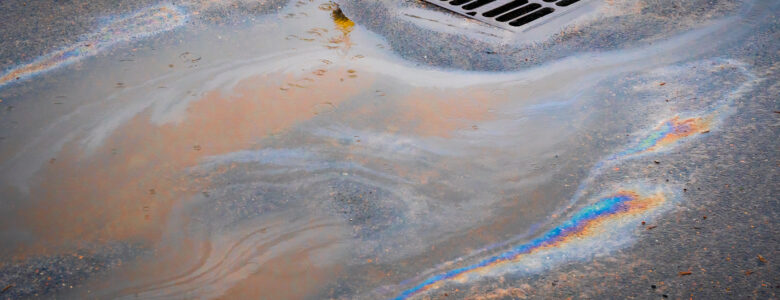Unlike sanitary sewer systems, storm sewer systems do not clean or filter the water that passes through them.
In sanitary sewer systems, the water is cleaned, treated and recycled for reuse. In storm sewer systems, the water is channeled untouched out of urbanized areas and back into nature.
Because of this, it is important for residents to make sure rainwater is the only thing entering City storm drains.
Larry Diamond, Storm Water supervisor for Eagle Mountain City, is responsible for educating City staff and residents on what’s known as “illicit discharge.” This term applies to anything dumped into storm drains that did not fall in the form of rainwater.
“All of our storm drains go to detention ponds, and then from detention ponds they go to the Tickville Wash,” he says. “Which eventually flows to the Jordan River, which is an impacted body of water.”
Any foreign substance dumped into a storm drain can contaminate local bodies of water, destroy plant and animal habitats, or even contaminate drinking water.
Illicit discharge can come in many forms, such as garbage, used motor oil or engine fluid, pet waste, grass clippings or leaves, or even soapy or dirty water from washing the car.
Diamond says the City typically responds to around two instances of illicit discharge each month, but have responded to seven so far in 2023.
While dumping anything other than storm water into a storm drain is a violation of Eagle Mountain City code, Diamond says his department seeks to educate residents.
“We don’t want to fine anybody,” he says. “So, if somebody does have a spill, we want them to call us and have us come out and help clean up. …We want to just work as a team to keep the waterways clean and to minimize cost.”
Residents are encouraged to report instances of illicit discharge to the Eagle Mountain City Stormwater department. Some signs of illicit discharge may include stains on, or around, storm drains, empty containers near storm drain inlets, or pipes or hoses leading into storm drains.
Residents can also prevent illicit discharge by ensuring that sanitary waste is always disposed of in the sanitary sewer system (sinks, toilets or tubs), washing the car in the yard rather than the driveway, and by disposing of hazardous waste at the nearest household hazardous waste facility.
“Our goal is to prevent pollutants from making it into a storm drain,” says Diamond. “It’s tenfold cheaper to clean up the spill when it’s on the surface before it gets into the catch basins or into the pipes.”
Residents are strongly encouraged to report instances of illicit discharge by calling the Stormwater hotline at (801) 789-5959 (#4).
Learn more about illicit discharge and how to prevent it with the following guides:


